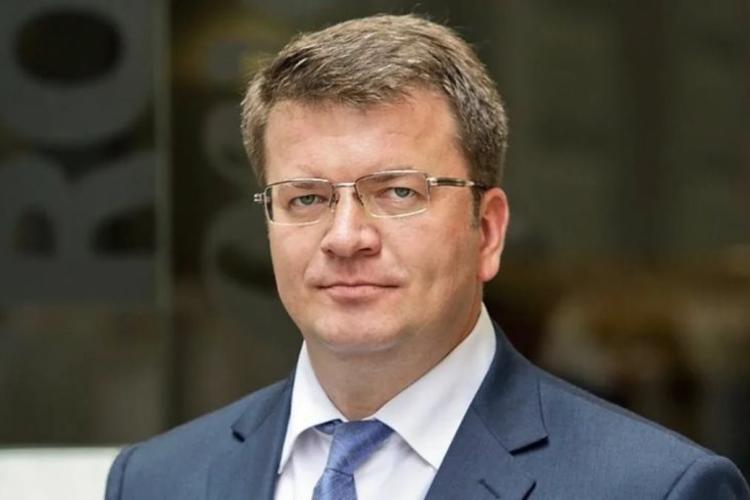- How do you assess the activities of the Ministry of Foreign Affairs prior to your appointment? Which areas in the department you wish to strengthen and what measures you are going to do about it?
-The Ministry of Foreign Affairs has done a great job over the years. I think that all necessary actions have been carried out at each stage by the Foreign Ministry.
Currently some additional steps must be taken that will further promote the interests of South Ossetia in the international arena. It is necessary to strengthen the work so that our Republic is recognized not only from a political standpoint, but also in cultural, economic and sports fields. We need to develop foreign economic relations. And this requires a coordinated team in order to introduce to the international community South Ossetia as a free, developing country, which aspires to peace, stability, trying to establish a safe and quality living for its population; that South Ossetia is a responsible member of the international community.
- How do you assess the effectiveness of the Geneva discussions on security in the Caucasus?
- Geneva discussions are the only format in which South Ossetia, Abkhazia, Russia, Georgia and international organizations take part. In this framework we can represent our interests on various issues, most important of which are security guarantees for South Ossetia and Abkhazia, as well as addressing humanitarian issues. The participation of South Ossetia in the Geneva discussions is one of the factors promoting the interests of the Republic on international arena.
- What do you think about the prospects for further recognition of the independence of South Ossetia?
- There are prospects for the recognition of South Ossetia by other states, and we are working on these issues. We work in different directions with many countries, conduct certain consultations and meetings. I think they will bring results.
- How do you comment on the positions of the West and Russia on the situation in Syria?
- The situation in Syria is quite complicated. And here it should be noted that the Syrian people must decide their fate themselves. One must have a careful approach to the issues which are important not only for Syria but for security in the whole region. So, I think that the position of Russia is weighed, it defends its principle, and this is very important. I am sure that still there are points of contact that will resolve the situation reasonably.
- What measures do you think the South Caucasus countries should take to stabilize the situation in the region?
- South Caucasus attracted attention from the international community; many are struggling to find their own interests. And, above all, we must decide on what we want for ourselves. It is necessary to make stability and security in South Caucasus the cornerstone. Thus it is necessary to consider the interests of each country regardless of its size. Therefore, we need negotiations on all significant issues for the region, but this process should involve all the countries of South Caucasus.
- How do you think it is important for South Ossetia to cooperate with international organizations? Is it necessary to interact with them and on what terms?
- Since we are a sovereign, legal, democratic state, we need to communicate with all subjects of international law, including international organizations. But, we need to place the interests of our Republic in the forefront. We can cooperation with international organizations only in this context.
It should also be noted that at the Geneva talks on security in the Caucasus some interim agreements are reached. For example, the 20th round discussion of international experts in the field of international law of the term "occupied territory" in relation to South Ossetia and Abkhazia has shown that it is not acceptable to our states. However, in a resolution adopted at a meeting of the OSCE Parliamentary Assembly, South Ossetia and Abkhazia, with the filing of the Georgian representatives, are referred to as the "occupied territories".
We have the bitter experience of these organizations activity in South Ossetia, and proceeding from our interests and from this experience as well, we must cooperate with them. It could also push us in the issue of recognition of our sovereignty.
- You participated in various forums and seminars of the non-governmental organizations a lot. In your opinion, how important this direction is for South Ossetia and what benefits it can bring?
- Non-governmental organizations play an important role in the development of the state. They occupy a niche where they can be useful in their field of work; both for individual groups, and for the society in whole. Their activities are regulated by our laws, and one should only follow the regulations. It is important to build a constructive ongoing dialogue between the state and public organizations. This is a difficult but very important process that affects a lot. Resource and capacity of NGOs is great, and it should be used to go on various international platforms.
- What do you think about the prospects of bilateral relations between South Ossetia and Georgia? Under what conditions such contacts would be possible?
- Today there are no agreements between Georgia and South Ossetia, and they can appear only after the recognition of our sovereignty by Georgia. Only in this case one can speak about the development of interstate relations.
Safety issues are discussed at the Geneva discussions, where Georgia refuses to guarantee South Ossetia and Abkhazia's security measures. The outcome of the report of Heidi Tagliavini are being ignored as it clearly indicates that Georgia started the aggression in 2008. The issue remains unsolved.
